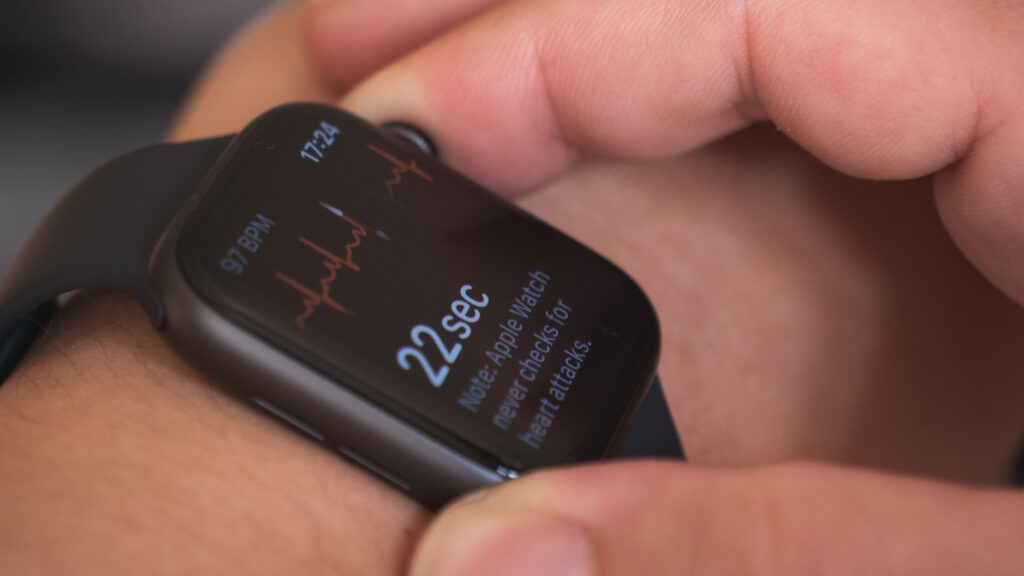As wearable health devices grow more popular in the U.S., there’s a growing opportunity to track the broader adult population’s heart health. But it’s much harder for an Apple Watch to accurately detect the heart’s electrical signals and rhythm than a set of hospital-grade electrodes. Its readings are messier, often because of poor contact with the skin.
A team of Yale researchers published a paper in Nature this month exploring a potential solution: an artificial intelligence algorithm trained on noisy electrocardiograms, electrical pulse recordings that illustrate heart function. Starting an algorithm off with this data could help it more easily adapt to the reality of imperfect wearable sensors.
advertisement
“You could say I’m going to find the clean, pristine-looking ECG that looks a lot more like the ECG done in a clinical setting, and only use those for diagnostics,” said study author Rohan Khera, a cardiologist and data scientist at Yale. “But that’s not the reality. Clinical ECGs are not obtained on wristwatches.”
Unlock this article by subscribing to STAT+ and enjoy your first 30 days free!

